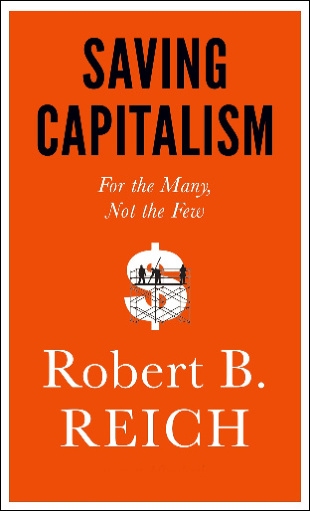Robert Reich is Chancellor's Professor of Public Policy at the Richard and Rhoda Goldman School of Public Policy at the University of California, Berkeley, and senior fellow at the Blum Center for Developing Economies. He has served in three national administrations and has written 14 books. Reich is a master at grabbing our attention as he does with this observation:
"We are now in a new gilded age of wealth and power similar to the first Gilded Age, when the nation's antitrust laws were enacted. The political effects of concentrated economic power are no less important now than they were then, and the failure of modern antitrust to address them is surely related to the exercise of that power itself. In this new gilded age, we should remind ourselves of a central guiding purpose of America's original antitrust law and use it no less boldy."
We are also living in times when upward mobility has been smothered along with wages. In 2017, more than two-thirds of Americans were living from paycheck to paycheck. Experts point out that children of the poorest families have only a 6% chance of reaching the top. Needless to add, there aren't any dark clouds in the earnings of chief executives of America's largest companies.
For those of us who have only a minimal knowledge of the workings of capitalism, Reich explains the free market decisions which weigh heavily upon us all. Property, monopoly, contract, bankruptcy, and enforcement are the five building blocks of capitalism and these are playing right into the hands of the rich and the powerful. Reich concludes:
"The coming challenge is not to technology or to economics. It is a challenge to democracy. The critical debate for the future is not about the size of modern government; it is about whom government is for. The central choice is not between the 'free market' and the government; it is between a market organized for broadly based prosperity and one designed to deliver almost all the gains to a few at the top."
